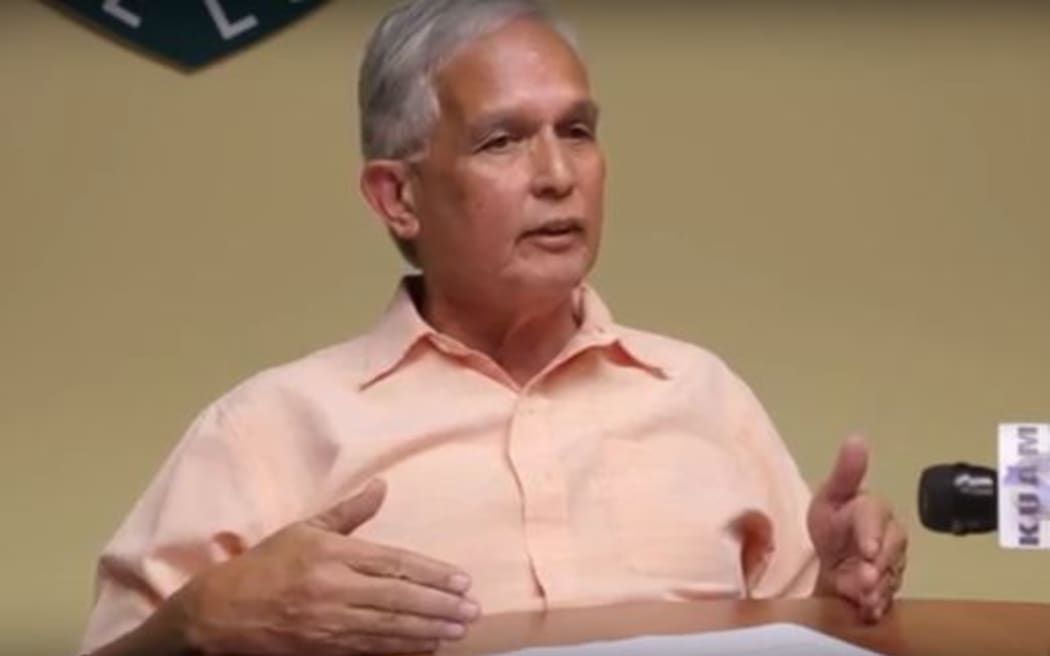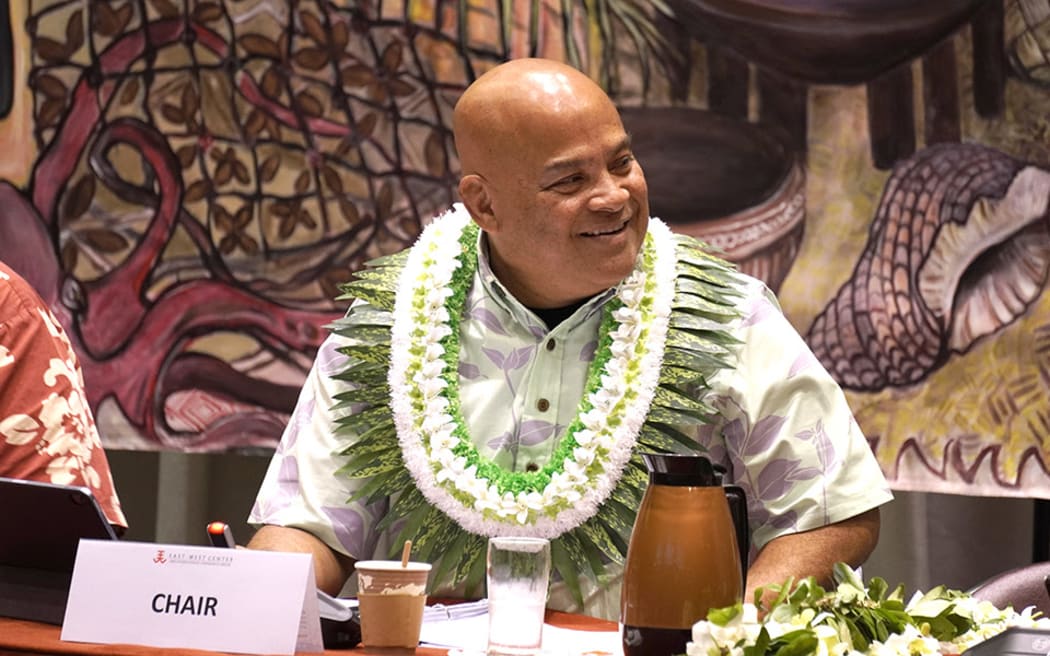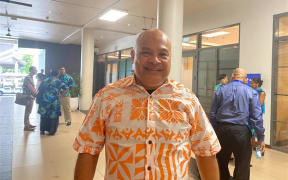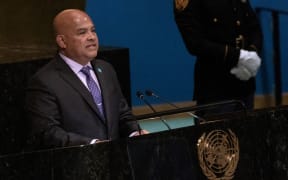
Robert Underwood served as the delegate from Guam to the US House of Representatives from 1993 to 2003 Photo: Supplied / University of Guam
The Federated States of Micronesia's (FSM) outgoing President David Panuelo's recent criticism of China has come as a result of the heightened geopolitical competition between Beijing and Washington, a former Guam congressman says.
Last week Panuelo penned a scathing letter in which he advocated for his country to switch diplomatic relations from China to Taiwan.
He also accused Beijing of making threats against him and of deploying tools of statecraft to destabilise the north Pacific nation.
The Chinese Embassy ambassador in FSM, Huang Zheng, in a statement last Friday, denounced his comments as "a clear misrepresentation of facts and slander".
"We firmly oppose to any word or behaviour against the one-China principle unveiled in the letter," Huang said.
"China firmly rejects any official communications between the FSM and Taiwan region in any form and firmly opposes any slanders against Chinese diplomatic and commercial activities."
Robert Underwood, who served as Guam's delegate to the US House of Representatives from 1993-2003, told RNZ Pacific that the FSM leader's actions would be a source of concern for China.
The former congressman said the Chinese foreign ministry's role has always been to continue to "delimit the role of Taiwan in International affairs".
But he said while it was "remarkable" for Panuelo to write the letter, his approach and timing was questionable.
"At one level, it is entirely consistent with President Panuelo's general approach to things which is that he can be frank, he can take a loud approach to things and sometimes what he says is exactly what is on his mind," he said.
"Sometimes people find that engaging [but] other times people find it distracting. On this occasion, I think it is going to be a little bit disruptive."

David Panueo Photo: Supplied
Compact deal
He said Panuelo was not in a position to carry out the bilateral switch to Taiwan given that he is about to leave office in two months' time.
"And then saying it almost as a matter of a transaction...you give me some money and we will do it...even in the most transparent way of dealing with foreign policy, just does not strike me as the way to conduct it," Underwood, who is also President Emeritus of the University of Guam, said.
"You are supposed to be speaking to your values and your commitment to certain international principles, and getting more money from [both sides] is not an enduring principle, although it is influential."
Of the three freely associated states with the US, only the FSM recognises China. The Marshall Islands and Palau recognise Taipei.
Underwood said as Panuelo is exiting as the FSM leader, a new compact deal is being negotiated and finalised with Washington and an "enormous amount of money [is] rumoured to be on the table".
"That is another influence in this conversation because the tenor of the conversation about China has to be influenced - if we are just thinking transactionally - by the fact that the enormous growth of a compact assistance that will emerge out of the contract negotiations and is now being presented by the Biden administration to the US Congress."
He added that he did not discount that some of Panuelo's claims had a factual base and that there were forces pulling the FSM apart.
"There is a secessionist movement; there is a Yap independence movement, there is the Pohnpei independence movement and it is rumoured that some of it has been fed by Chinese agents, but those movements have been around for a while.
"But I would say that China's probably not trying to help keep the country together."





